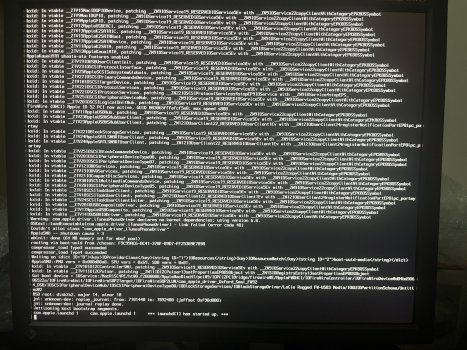View attachment 2372550
So, after a lot of work I got build 10A222 booting on PPC.
Hundreds of binaries lost ppc support and had to be downgraded to 10A190 and older Like Preference Panes, most of /Applications, /bin, Kexts and some apps in CoreServices like Finder. Also had to write a kext to stub a couple kernel symbols required by the old IONDRVSupport kext and compile /usr/sbin/notifyd from AOSP.
I haven’t tested much this build and patches so I don’t know how stable it is.
I’ve imaged a patched install including some updated files and apps, QE/CI, WiFi and Bluetooth patches. This image should hopefully work with all PowerPC Macs that were supported by 10.5.8.

File on MEGA
mega.nz
Does not boot on Quad, unfortunately. Just fans go mad and loading screen.
Initially it went into KP, but that was due to two faulty kexts (same on 10a190). Removed those, no KP, but no booting
I can try on a PowerBook though.
UPD. On PB G4 it boots fine. It would be cool to have G5 working, I cannot do any development work on G4, that is unbearably slow LOL
Last edited:


